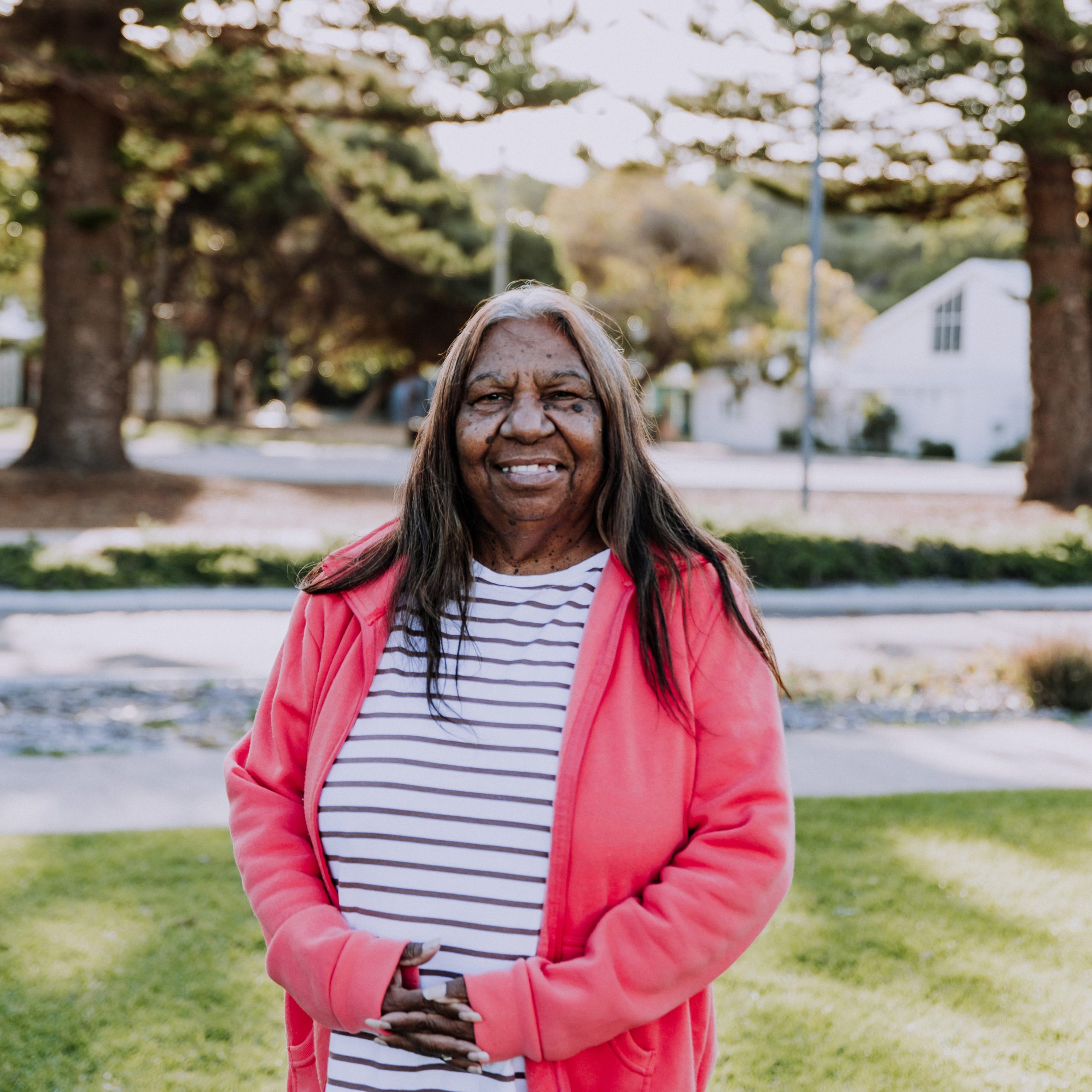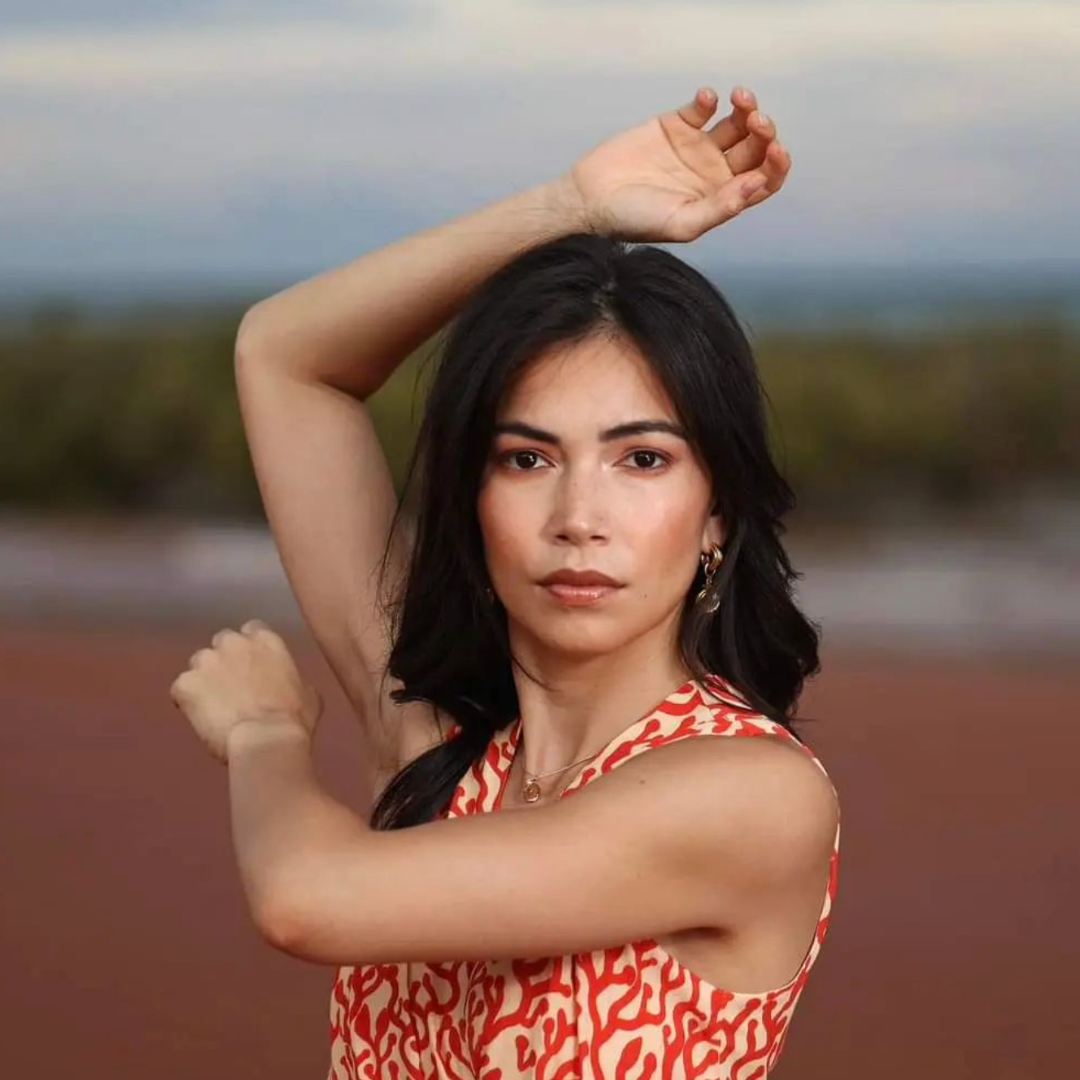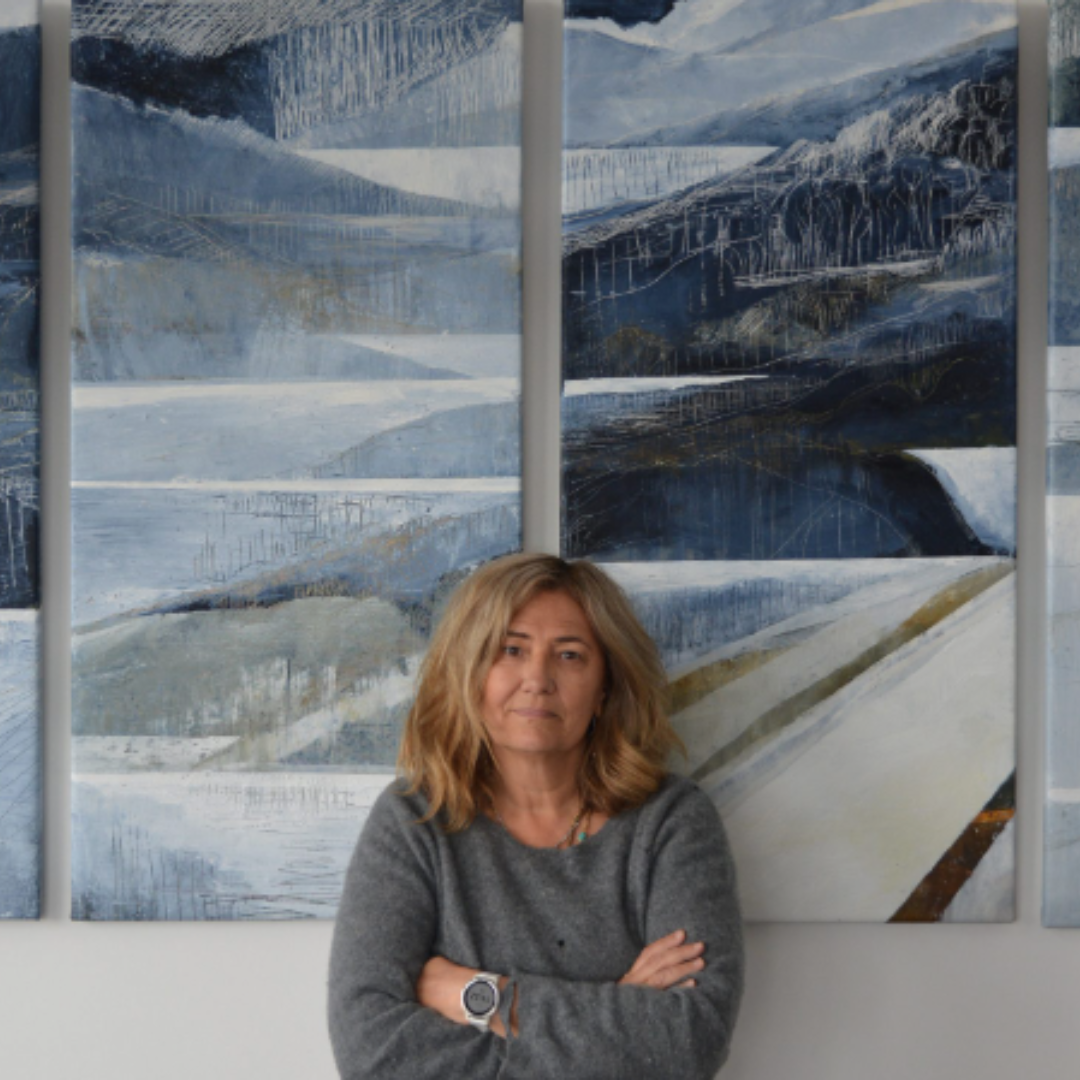KEPA KURL CALLING, ESPERANCE I HEAR YOU
Written by Bec Bignell
Aunty Yvonne Green has always been a natural cheerleader – she’s dedicated her entire life to relentlessly making opportunities accessible to people in her community.
A Ngadju Elder, originally from Norseman in regional WA, Aunty Yvonne pursued a career in education driven by the fact her parents couldn’t read and write.
“Education interests me because both of my parents couldn’t read and write. I thought back after I furthered my education, I could have taught them to learn to read and write but I kick myself because I was at that age that I wasn’t aware that I could do that. But now I’m very aware, I help as many families that I can.”
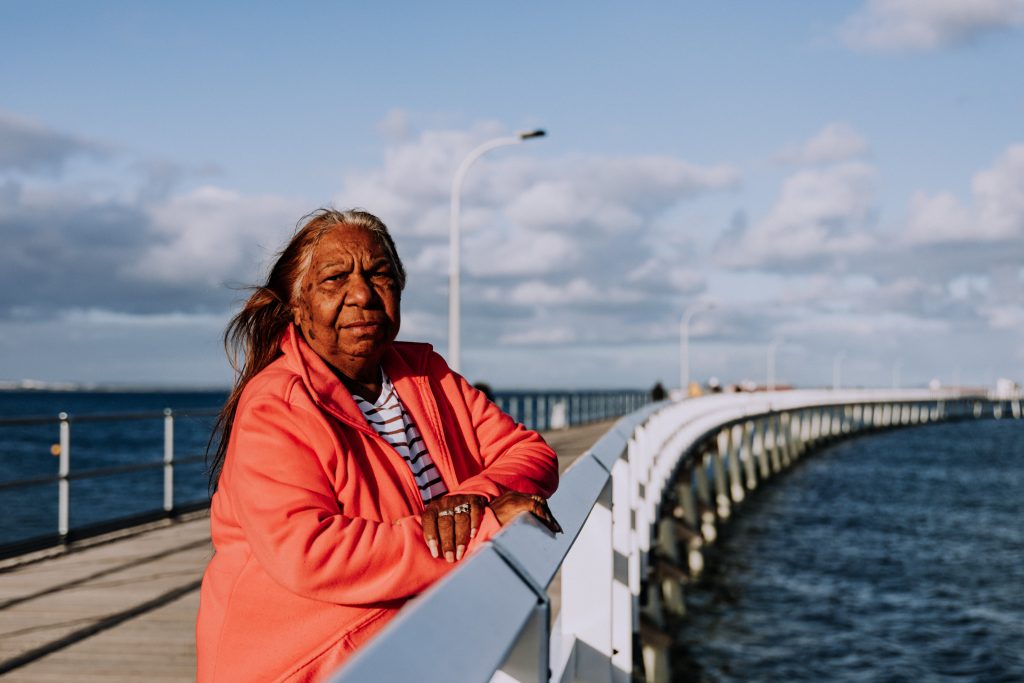
Totally selfless, her parents warmly welcomed people from all walks of life into their home, teaching Aunty Yvonne about the true meaning of community from a very young age.
“I come from a large family, and we were always taught by Mum and Dad that our house was always home for people, not only Aboriginal people, but my brothers would also bring back people that had broken down on the side of the road, or a hitchhiker, and Mum would put them up, give them a feed and then they could go on their way the next day. They never turned anyone away. That was their heart.”
Partial to adventures, Aunty Yvonne was quick to accept a job opportunity in Perth, and while she was apprehensive about leaving her family and friends, the excitement of city life was something she couldn’t wait to try.
“I was working at the school and there were some job opportunities that came up. I’ve always wanted to live in the city, because I love the city, and it was this new, big dream for me. So, I came to the city and while I was in the city there was an opportunity to get back in the education system, and that’s where I stayed in the education system for 29 years.”
Never one to be intimidated she adjusted seamlessly and flourished in the new environment. She purchased a house so friends and family could stay, she quickly settled into her job, and she fearlessly took on the public transport system.
“It was scary because I used travel from Armadale on the train – the train was nearly empty because it’s the first stop going into the city. Being an Aboriginal person, no one would want to sit next to me on the train. I didn’t mind. Sometimes someone would sit next to me but most of the time they’d see I was Aboriginal, and they just tarred everybody with the same brush. I didn’t care because I knew I was proud; I was working and I had a good job and when I went to work I had friends that respected me.”
CITY TO SAND
After a long and extremely successful career in the education sector in Perth, Aunty Yvonne decided to retire and return to her roots. She packed up her life in the city and moved to Esperance, Kepa Kurl, a regional community on the south coast of Western Australia.
“Esperance has always been a part of my life. When we were children, we would come down with Mum and Dad and in those days, there were no houses, so we used to live at place called Bandy Creek and we had tents. Our Pop was there, and our men, and they had a lot of cats, and all the families came from all over and we just ate fish and played around in the bush – all of us kids were all together all the time. It was a happy gathering and lot of good memories, even though we didn’t have much. We had each other.”
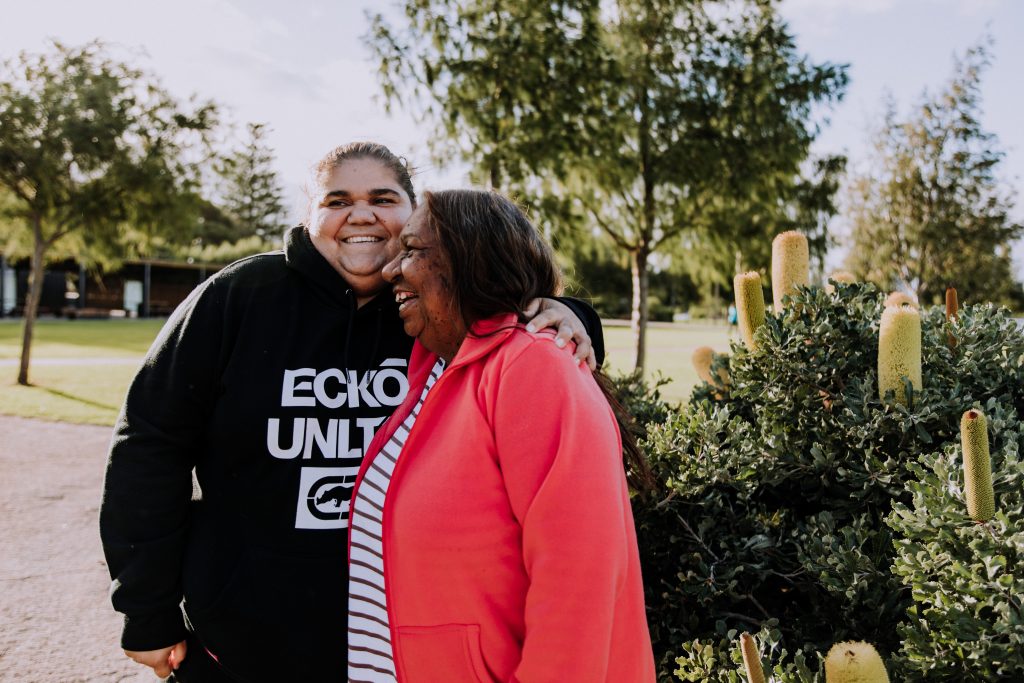
After years of living among the hasty, hectic pace of the rat race, heading back to the calm, tranquil life in the bush was a welcome move for Aunty Yvonne.
“Esperance is absolutely beautiful – the waters are different colours …if you’re feeling down and you want to go for a drive, you just go for a drive and that’s your medicine. Just driving or sitting down at the front beach and just watching the waves and watching the kids swimming, clears your mind. And if it’s a really hot day you go down in the afternoon, just wait and then the breeze comes off the water – it’s just calming.”
Her inherent love of the natural Esperance environment saw her take an active role in heritage interests pertaining to Ngadju areas of the Great Western Woodlands and she’s passionate about protecting the exquisite region.
The magical Esperance beaches and the unique biodiversity of surrounding bushland has attracted increased attention due to social media. International travellers have been enticed to the area, beguiled by online imagery of the iconic natural wonders. Aunty Yvonne says Esperance is a warm welcoming community that embraces all who visit the area. However, she urges people to respect and nurture the area so it can continue to flourish well into the future.
“In the early days the old people just took what they needed…and now with the group in place (the Tjaltjraak Rangers) they’re teaching tourists to look after our country. When you come here, be respectful – respect the animals. There are some sacred sites, some places where they don’t want people going and disturbing. But also, when you’re camping make sure you take your rubbish and keep the place clean and tidy because that’s what our lot do.”
Aunty Yvonne also encourages people visiting temporarily and moving permanently to respectfully invest in learning about First Nations history which is visually celebrated through murals and art around town. She’s also keen to inspire connection with local First Nation people interested in sharing their stories and knowledge, “there’s lots of stories surrounding Esperance and the people are very friendly, not hostile, they’re very friendly.”
SOFT DIPLOMACY FROM THE STICKS
Despite feeling restored by the rejuvenation of her Esperance environment, never one to sit still, Aunty Yvonne put retirement on hold when she landed a job with the Ngadju Native Title Prescribed Body Corporate (PBC) and the Abbott’s Trust
A penchant for overseas travel activated an interest in soft diplomacy and her role at Ngadju Native Title presented an opportunity for Aunty Yvonne to cultivate international cross-cultural connections, which isn’t inhibited by her location in the country.
“I really believe that we need to keep that connection that our Elders had made with Indonesia many years ago, with the Sea Cucumber. When you look at up at Darwin, up the top end, you can still see that with the people, their similar ways, and the trading – that was very important those days and now it’s still important for our lot to go back and communicate with the Indonesian people because at the end of the day, we’ve got similar things together – our ways.”
She also actively promotes global travel to young First Nations people, “it’s important for some of our youngsters to learn how to get passports, learn how to travel because with me, I travelled in my late sixties. I always wanted to go to America and then when I retired, I had the money to go so, I went to America first and I loved it. Then a couple of years I went back again because I wanted to go to Nashville, and I wanted to go to New York.”
And while she loves meeting new people and travelling to new places, Aunty Yvonne is very settled in her spectacular part of the world.
Even though Esperance is five hours away from the capital city, it has all the excitement and energy of some of the places she’s enjoyed overseas – world class beaches and bushland, a deep love for sport, a thriving arts and culture scene, vibrant community, and electrifying events which bring so much joy and establish a strong sense of pride.
“When we have Aboriginal week, it’s just full on – everybody comes, and people don’t understand but that’s Aboriginal week in the Goldfields, all the families and all the different language groups all get together. And all the boys are out running playing footy with all their different colours. You have to be there to see it….you see them all proud, clapping and cheering.…. and the old nanas are shouting and waving their fists.”
Back in the bush, with family by her side, Aunty Yvonne shows that you don’t have to be based in the big smoke to have international influence and advance critical change. She’s as humble as they come but her impact is as powerful as the awe-inspiring Southern Ocean.
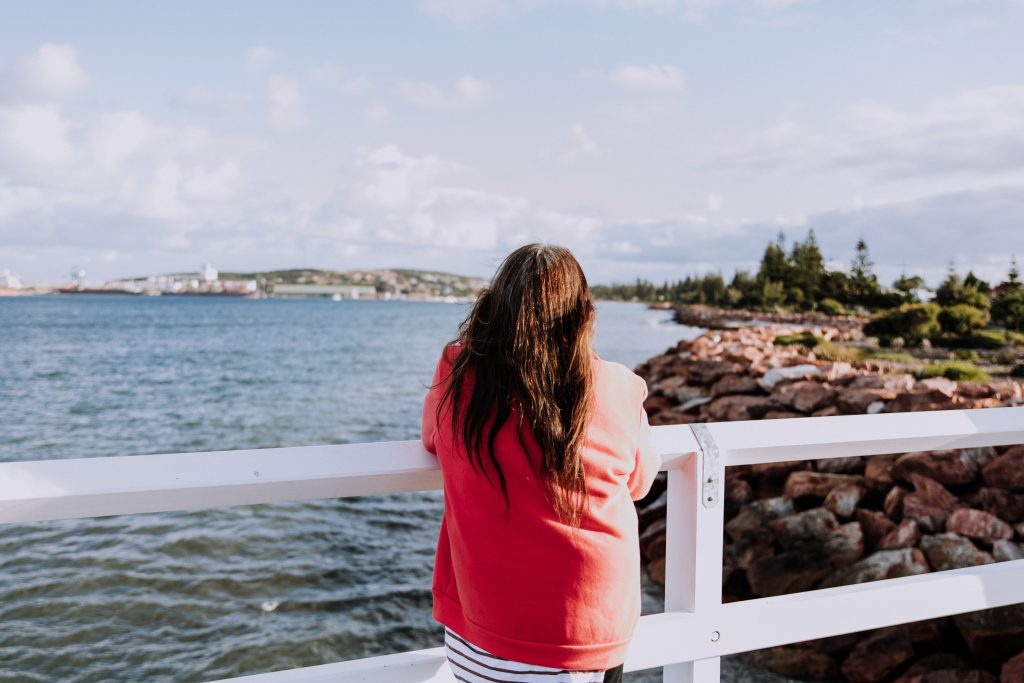
Aunty Yvonne’s regional rouse:
“By moving back to the regions, it will open up their eyes and show them there are more opportunities in the region than in the city. The city is fast – everybody’s competing. Yes, you can have money, money, money but in the regional towns, you don’t have to have money – you’ve got food in the cupboard, your kids can walk to school, you have friends. If there’s something happening in the community everybody supports you, you’re not alone. It’s not about you being an Aboriginal living in a community, you’re part of that community – you belong.”
